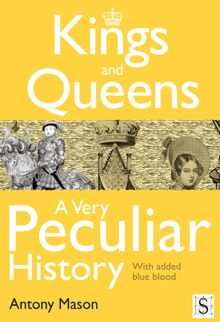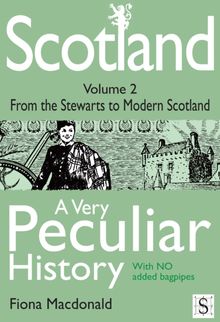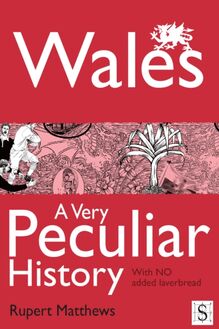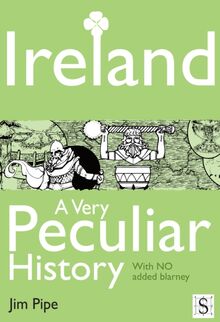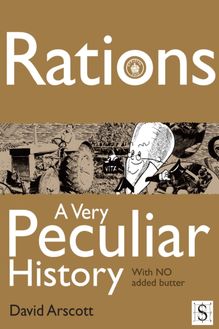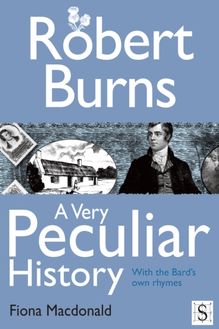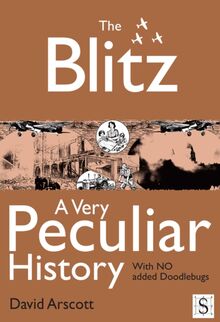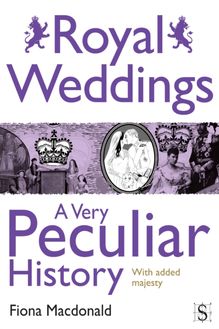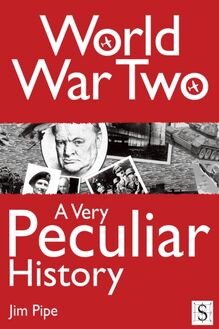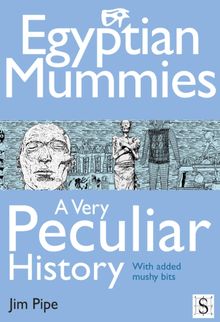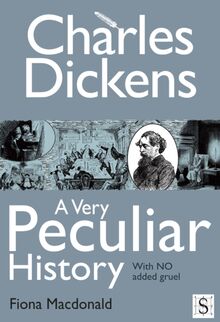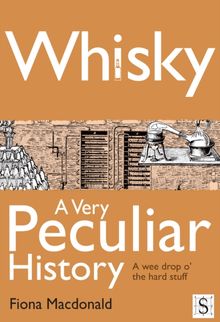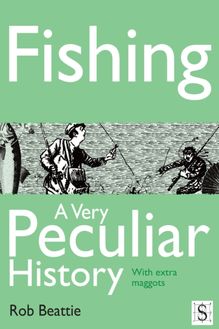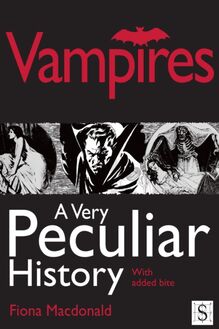-
 Univers
Univers
-
 Ebooks
Ebooks
-
 Livres audio
Livres audio
-
 Presse
Presse
-
 Podcasts
Podcasts
-
 BD
BD
-
 Documents
Documents
-
- Cours
- Révisions
- Ressources pédagogiques
- Sciences de l’éducation
- Manuels scolaires
- Langues
- Travaux de classe
- Annales de BEP
- Etudes supérieures
- Maternelle et primaire
- Fiches de lecture
- Orientation scolaire
- Méthodologie
- Corrigés de devoir
- Annales d’examens et concours
- Annales du bac
- Annales du brevet
- Rapports de stage
La lecture à portée de main
Vous pourrez modifier la taille du texte de cet ouvrage
Découvre YouScribe en t'inscrivant gratuitement
Je m'inscrisDécouvre YouScribe en t'inscrivant gratuitement
Je m'inscrisEn savoir plus
Vous pourrez modifier la taille du texte de cet ouvrage
En savoir plus

Description
Sujets
Informations
| Publié par | Andrews UK |
| Date de parution | 23 janvier 2012 |
| Nombre de lectures | 0 |
| EAN13 | 9781908759368 |
| Langue | English |
Informations légales : prix de location à la page 0,0300€. Cette information est donnée uniquement à titre indicatif conformément à la législation en vigueur.
Extrait
Title Page
ROBERT BURNS, A VERY PECULIAR HISTORY
Written by
Fiona Macdonald
Created and designed by David Salariya
Publisher Information
First published in Great Britain in MMXII by Book House, an imprint of
The Salariya Book Company Ltd
25 Marlborough Place, Brighton BN1 1UB
www.salariya.com
www.book-house.co.uk
Digital edition converted and distributed in MMXII by
Andrews UK Limited
www.andrewsuk.com
Editor: Jamie Pitman
Assistant editor: Jodie Leyman
© The Salariya Book Company Ltd MMXII
All rights reserved. No part of this publication may be reproduced, stored in or introduced into a retrieval system or transmitted in any form, or by any means (electronic, mechanical, photocopying, recording or otherwise) without the written permission of the publisher. Any person who does any unauthorised act in relation to this publication may be liable to criminal prosecution and civil claims for damages.
Every effort has been made to trace copyright holders. The Salariya Book Company apologises for any omissions and would be pleased, in such cases, to add an acknowledgement in future editions.
Visit our website at
www.book-house.co.uk
or go to
www.salariya.com
for free electronic versions of:
You Wouldn’t Want to be an Egyptian Mummy!
You Wouldn’t Want to be a Roman Gladiator!
You Wouldnt Want to Join Shackleton’s Polar Expedition!
You Wouldn’t Want to Sail on a 19th-Century Whaling Ship!
Dedication
For Sheila and David Macdonald
Quotes
‘Sentimental doggerel’
Broadcaster Jeremy Paxman, 2009
‘Uncommon invitin’ in his speech…’
Farm girl Nelly Miller, c.1790
‘Possessed in an extraordinary degree the powers and failings of genius.’
Edinburgh music publisher George Thomson, 1796
‘One of the great poets of the human heart.’
Former Poet Laureate Andrew Motion, 2009
‘Mair [more] nonsense has been uttered in his [Burns’s] name – than in ony’s [any] barrin [barring] liberty and Christ.’
from Hugh MacDiarmid, ‘ A Drunk Man Looks at the Thistle ’, 1926
Introduction: Touching Scotland’s soul
With MacDiarmid’s words of warning ringing in our ears, where do we begin? For almost 250 years, Burns has been a – no, the – Scottish cultural hero. A poet! A ploughman! A wild, natural genius! A studious book-lover! A loyal son, a loving father! A seducer, a libertine!
A carefree drunkard – or depressed and dyspeptic? (The latter. Burns frequently suffered from ‘melancholia’ – and terrible indigestion. As a remedy for the stomach trouble he ate home-made sheep’s-milk cheese.) A celebrity, but with muddy boots and farmyard language that ‘excites contempt by its meanness and uninteresting simplicity’ (Robert Heron, A Memoir of the Life of the Late Robert Burns, 1797). A friend of nobles and the gentry. A fierce critic of pomp and privilege. A dutiful, tax-collecting, civil servant. A bold free spirit, champion of equality!
The man is a mass of contradictions. Indeed, we are so fascinated and perplexed by his short, intense, eventful life, that we often forget to read his poetry. In a 2004 Scottish survey, only 38% of men and 35% of women could recall a single verse from the works of ‘The Bard’.
More recently, Burns has also been hailed as a friend of Scotland’s Union with England – and as a supporter of Scots Independence. His name and image have been used – and abused – in every possible way, to promote ‘Brand Scotland’ all round the world. Countless things have been named after him, from an international humanitarian award to a diesel locomotive and (if campaigners have their way) an airport currently threatened with closure.
Burns has inspired films, festivals, musicals and, allegedly, Bob Dylan. There are karaoke versions of ‘Auld Lang Syne’ (which he popularised but didn’t actually write). His works were sung and recited at the opening of the new Scottish Parliament in 2000; there were also proposals to give a committee room there his name. He is portrayed in over 200 grand public monuments, from the USA to China. According to the Scottish Government, ‘The Kremlin Burns Supper is televised every year.’ The same source (a speech by Scottish First Minister Alex Salmond, 2009) also confidently asserts: ‘His is the voice of Scotland: “bold, Independent, unconquer’d and free”.’
Whether that is true or not – and, remember, Scottish rebels had only recently been conquered by English-led armies at the time when Burns was born – it is what many people in Scotland and far beyond think and feel today. The mere mention of Burns presses all the right buttons in many a Scottish (and other) breast to generate a warm, comforting, generous feeling of… what, precisely? Pride and patriotism – perhaps, but they are not the point. Much more important is a sense of recognition, understanding, shared humanity.
And that, whether you like Burns’s poems or not, really is an astonishing achievement. Burns was born in poverty, suffered chronic ill health, had few opportunities and faced considerable misfortunes. Yet he created over 600 poems and songs that are still worth reading today, in spite of their sometimes obscure or difficult language. They are not all good: some are coarse and crude, some are sycophantic, some – yes, you are right, Jeremy Paxman – seem cloyingly sentimental. But the best will stand comparison with any other poems, from any place or any time. As Burns himself said:
My muse, tho’ hamely in attire,
May touch the heart.
Bawdy bard
In 1930, Scottish writer and feminist Catherine Carswell (1879–1946) wrote a pioneering, novel-like biography, The Life of Robert Burns , in which, for the first time in mainstream literature, she described several of the poet’s love affairs, and quoted from some of his more lusty verses and boastfully explicit correspondence. Referring to all these, she remarked: ‘Happily the time has come when the best minds can find nothing shocking in the frankness of the normal man which was so dear to the Bard.’
Alas, Carswell was far too optimistic. Soon after her book was published, she received a bullet through the post. With it was a letter suggesting that she kill herself, to leave the world ‘a better and cleaner place’.
‘To lack sympathy with Burns is to lack sympathy with mankind.’
Biographer Catherine Carswell, 1930
Readers, you have been warned. This is not a book for the ‘primsie’ (as Burns might have said), or for those easily offended by criticism of religious hypocrisy – or for the very young. But to discuss Burns’s poems without reference to love – in all its forms – would be to misunderstand him completely:
‘I never had the least thought or inclination of turning poet till I got heartily in love, and then Rhyme and Song were the spontaneous language of my heart.’
Even so, you will find nothing here too coarse or outrageous – for that, you must read Burns’s private letters, or leaf through The Merry Muses of Caledonia (c.1800), a collection of traditional bawdy ballads that Burns edited for his friends in the Crochallan Fencibles, an Edinburgh drinking club. Like any other writer – and Burns worked hard to turn himself into a serious author – he considered his audience, mostly removing obscenities from his own works or from old country songs before general publication.
A guid Scots tongue
Another word of warning. Burns spoke Scots – the traditional language of southern Scotland. And he wrote in Scots, as well as in English. Where we have quoted his Scots verses, we have added some words of English translation. Scots words used in the text are explained in the glossary.
Written down, Burns’s texts can sometimes look rather forbidding. But, if you say the words aloud to yourself, or ‘hear’ them in your head (just like Burns did when he was composing), they will soon became familiar. So – read on, and enjoy!
There was a lad was born in Kyle,
But whatna day o’ whatna style,
I doubt it’s hardly worth the while to be sae nice wi’ Robin.
Our monarch’s hindmost year but ane
Was five and twenty days begun,
Twas then a blast o’ Janwar’ win’
Blew handsel in on Robin.
The gossip keekit in his loof,
Quo’ scho:- ‘Wha lives will see the proof.
This waly boy will be nae coof: I think we’ll ca’ him Robin.
He’ll hae misfortunes great an’ sma’,
But aye a heart aboon them a’;
He’ll be a credit till us a’: We’ll a’ be proud o’ Robin!’...
from ‘ There Was a Lad ’, 1787
[ Kyle: south-east Ayrshire, Scotland; whatna’: what was the; o’: or; sae: so; nice: particular, precise; hindmost year but ane: last year but one (the monarch is George II, d. 1760); Janwar’ win’: January wind; handsel: New Year’s greetings; gossip keekit: midwife peered; loof: palm; Quo’ scho : says she; waly: big strong; nae coof: no fool; hae: have; sma’: small; aye: always; aboon: above; a’: all; till: to.]
CHAPTER ONE: ‘There was once a lad’
At the height of his new-found fame, Burns felt confident enough to celebrate his own birth in the triumphant verses quoted opposite. He recalls a gossip’s (midwife’s) prophecy that, one day, he would make his family and friends proud. Later in the same poem, Burns also recalls the second half of the midwife’s prediction: that he would have great success with ‘the lasses’.
Whoever that old gossip was, she got things right all round. But Burns’s verses also tell another true story concerning his birth. Like the midwife’s prediction, it seemed to for
-
 Univers
Univers
-
 Ebooks
Ebooks
-
 Livres audio
Livres audio
-
 Presse
Presse
-
 Podcasts
Podcasts
-
 BD
BD
-
 Documents
Documents
-
Jeunesse
-
Littérature
-
Ressources professionnelles
-
Santé et bien-être
-
Savoirs
-
Education
-
Loisirs et hobbies
-
Art, musique et cinéma
-
Actualité et débat de société
-
Jeunesse
-
Littérature
-
Ressources professionnelles
-
Santé et bien-être
-
Savoirs
-
Education
-
Loisirs et hobbies
-
Art, musique et cinéma
-
Actualité et débat de société
-
Actualités
-
Lifestyle
-
Presse jeunesse
-
Presse professionnelle
-
Pratique
-
Presse sportive
-
Presse internationale
-
Culture & Médias
-
Action et Aventures
-
Science-fiction et Fantasy
-
Société
-
Jeunesse
-
Littérature
-
Ressources professionnelles
-
Santé et bien-être
-
Savoirs
-
Education
-
Loisirs et hobbies
-
Art, musique et cinéma
-
Actualité et débat de société
- Cours
- Révisions
- Ressources pédagogiques
- Sciences de l’éducation
- Manuels scolaires
- Langues
- Travaux de classe
- Annales de BEP
- Etudes supérieures
- Maternelle et primaire
- Fiches de lecture
- Orientation scolaire
- Méthodologie
- Corrigés de devoir
- Annales d’examens et concours
- Annales du bac
- Annales du brevet
- Rapports de stage
